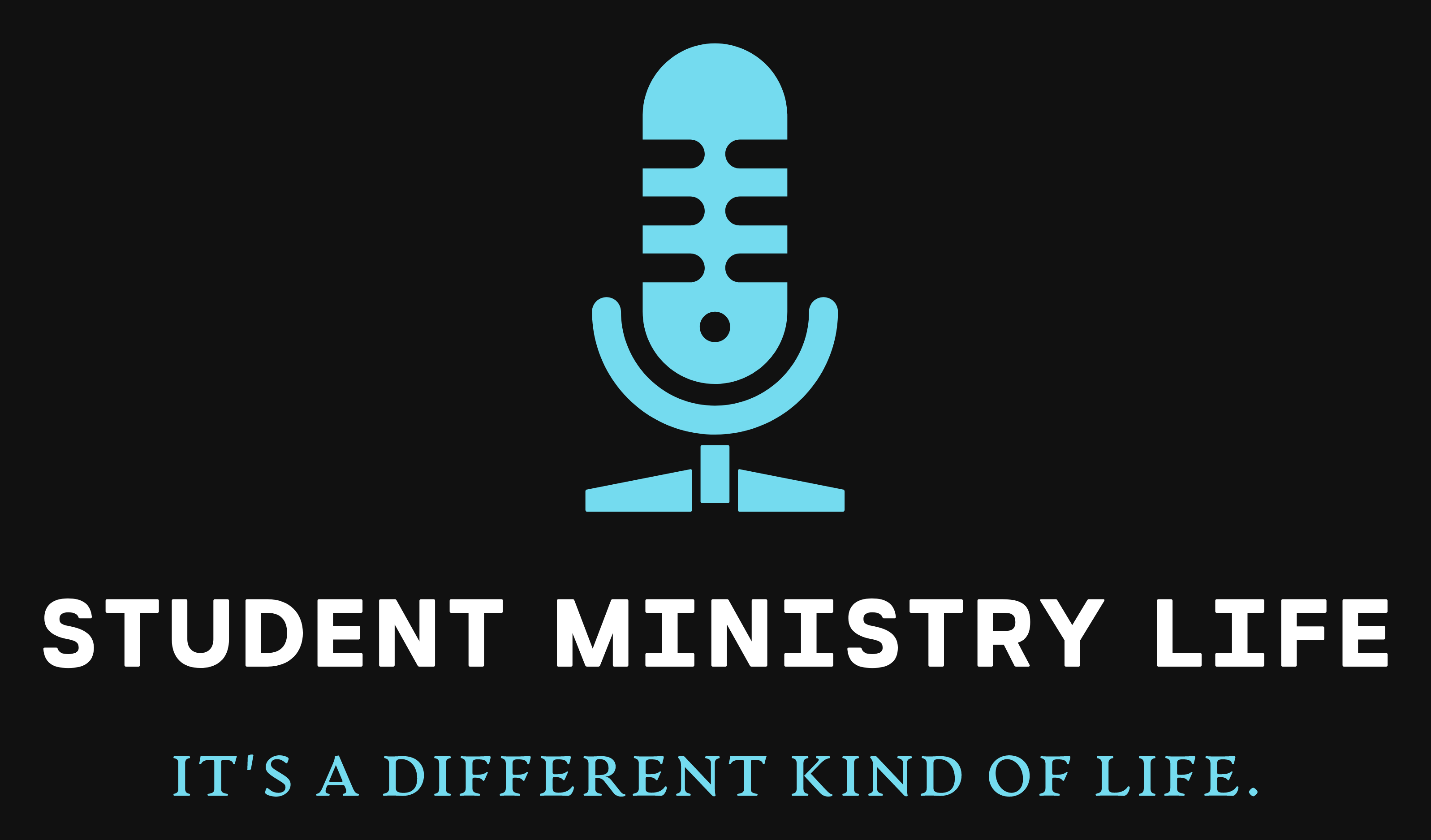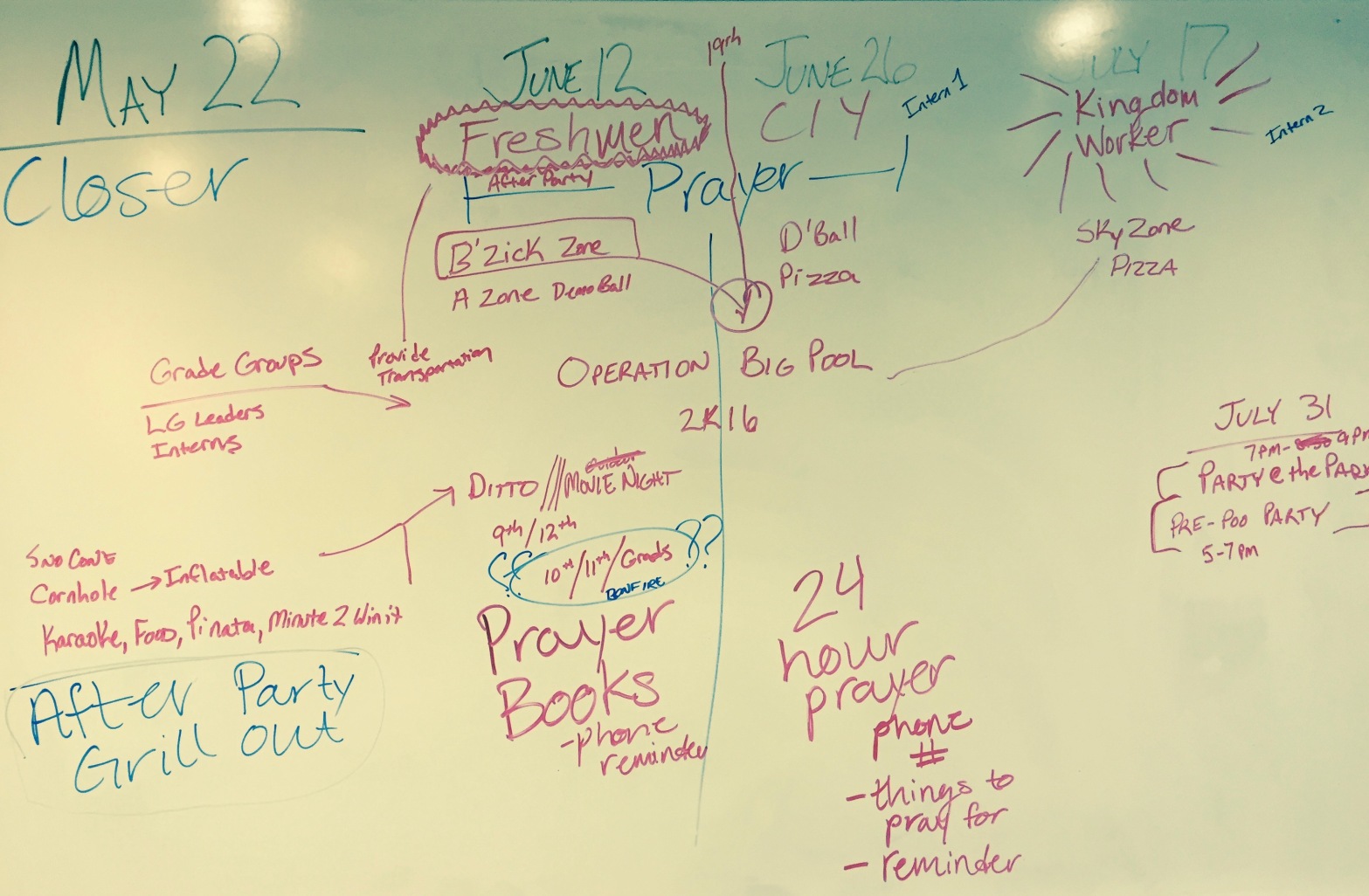The Student Ministry Calendar is extremely busy, especially compared to all other ministries in the church. It can be exhausting just looking at a yearly or even a summer student ministry calendar. You have outreach events, discipleship events, community events, worship events, serving events, camps, retreats, mission trips, and then you multiply all of that by two if you have separate Middle School & High School Ministries.
The question becomes, is it necessary to have a jam-packed calendar full of events, trips, and programming?
I bet we would be surprised by how many of us don’t even ask this question. We just pack our calendars full of things, because that’s what we do, or in all honesty, we don’t realize we’re packing them this full. We put an event here, and a trip there, surrounded by programs, and the next thing we know, we’re gone four nights out of the week or two weeks out of the month. When we examine a couple of things, we can plan our ministries with more intentionality. We should always be asking, 1) Why do we do the events, trips, programs we do, and 2) Is there a better, more efficient way to do what we currently do?
I believe when we ask these questions, we can come up with three solutions to be more intentional, efficient, and impactful:
-
1. Combine events to maximize impact.
Combining events can surprisingly be very advantageous to, not just you, but your volunteers, students, and parents. For some reason, we get so focused on having “outreach” events that we lose sight of why we do outreach events. For instance, I plan a huge water wars night designed to get the masses through the doors of our church. We don’t do worship, teaching, or anything like that, because this is an outreach event, not a worship/discipleship event. My goal of the night is to collect all of the new people’s information, and make sure they are invited back to said worship/discipleship event or maybe a normal programming night. The problem with this, is a very small percentage, or maybe a fraction of a percentage would actually come back to a normal programming night. After all, they came for the fun, so where is the drawback to a “non-fun” night.
Combining events will put fun AND focus all in one event, without having to figure out how to get students back for something more meaningful.
What happens when you combine events, especially in the summer when you have more time, is it puts fun and focus all in one day/night. Maybe it’s once a month, attaching an After Party to a Wednesday night service. Do your normal program, but then have food and fun that follows. This would double your timeframe, but when you do it once a month in the summer, it’s really not a big deal. You could do things on campus, like dodgeball tournament, water wars, nerf wars, or things off campus, like bowling, trampoline park, swimming, etc. What you’ll find is, you skip the step of trying to get people to come back to your program, because they are already there, waiting for your After Party! Our motto this summer has been, “Come for Jesus, stay for the after party.” Usually it’s the other way around, and they don’t end up staying.
-
2. Know the difference between utilizing momentum and over-scheduling.
Sometimes, it’s actually smart to schedule multiple things in a week when you’re coming off of a momentum-producing event or trip. But often, we are simply over-scheduling. When we step back and take a birds-eye look at our calendar, there are many random events with no purpose or meaning behind them, other than another night away from home for all, with little fruit to show. When we schedule heavy around momentum-producing events, and light elsewhere, we begin to see, not only more fruit, but more excitement around events. Often times, stand-alone events become pretty ho-hum.
I always like to start big and end big, with students hungry for more in between.
End the summer with a big event, take a couple weeks off, then come back with a big kick-off event for the fall. To me, when students are hungry for more, it typically means we are doing well with the events we are doing, and not over-scheduling.
-
3. Utilize resources from other ministries.
Typically, churches have multiple ministries doing the same ministry. In other words, there may be Children’s Worship, Student Worship, and Adult Worship Ministries, Children’s, Student, and Adult Small Group Ministries, etc. Why not pool resources and help each other out? Granted, some things need to be separated, but sometimes we are duplicating events unnecessarily. There could be huge benefits to doing a church-wide small group leader training event, with age-specific breakouts. Or using your adult worship ministries to train and mentor your student worship team(s). This way, we are resourcing more efficiently while showing the congregation that we are one team going in one direction.
Typically, churches have multiple ministries doing the same ministry…why not pool resources and help each other out?
I believe that when we schedule with momentum, combine events for greater impact, and utilize resources from other ministries, our planning will be much more intentional and deliver a greater punch overall.
Have you seen planning be more effective using any of the about 3 solutions?


One thought on “3 Ways to Planning Events w/Intentionality”